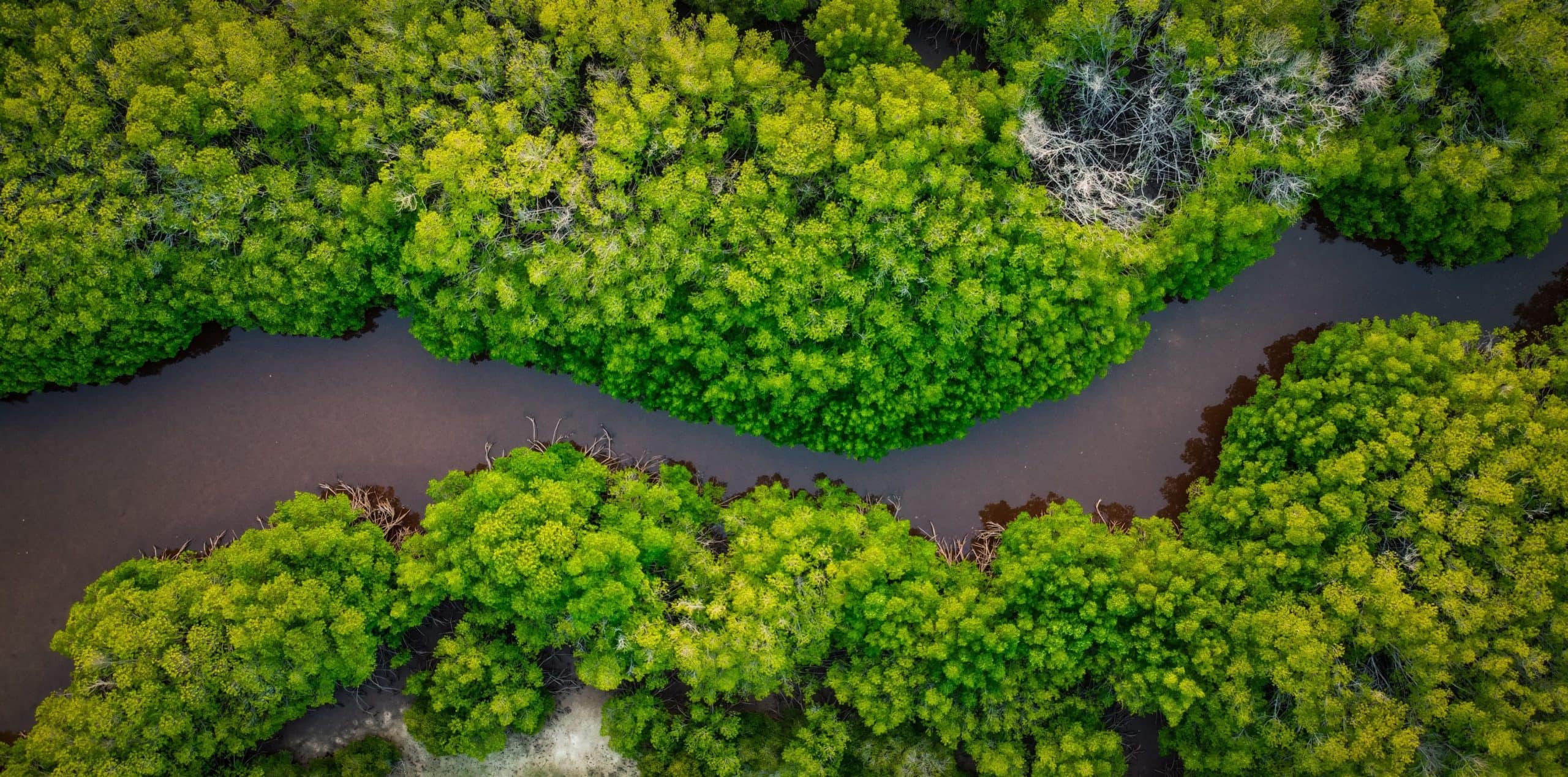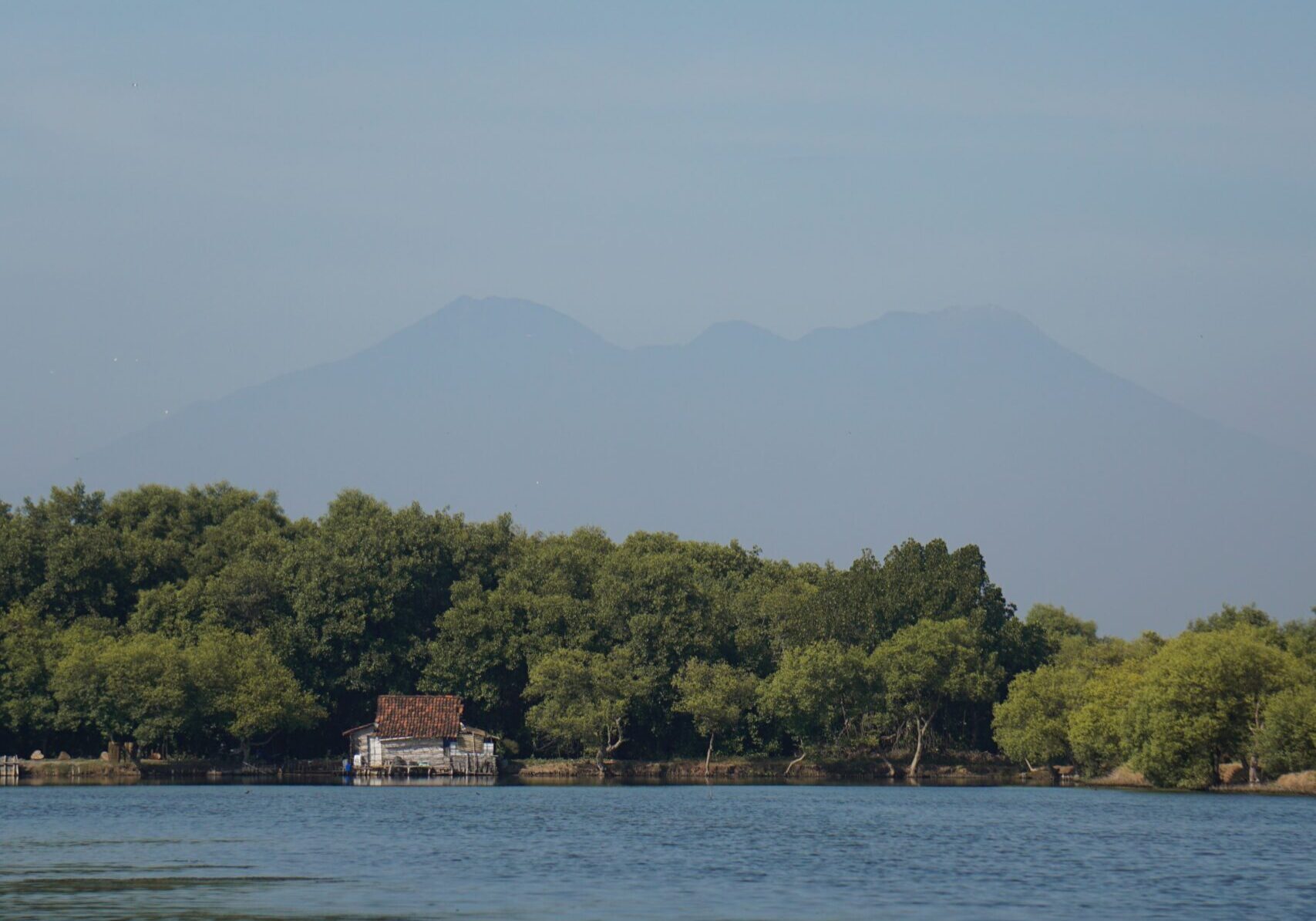The Mother of Mangroves: Inspiration in the Face of Deforestation

As we approach July 26th, the International Day for the Conservation of the Mangrove Ecosystem, we are thrilled to highlight Lia Putrinda Anggawa Mukti, co-founder of the Bhakti Alam Sendang Biru Foundation in East Java, Malang, Indonesia. Lia’s work has helped to bring more attention to mangrove forests and coastal ecosystems in Southeast Asia, with the hope of restoring these habitats for the well-being of nearby wildlife and her community.
Mangrove forests are an essential component of our planet's biodiversity, serving as a vital link between land and sea. Found primarily in areas near estuaries, mangrove forests play a crucial role in maintaining the health of these ecosystems, by regulating water quality and bringing nutrients to the water. Compared to tropical forests, mangroves sequester carbon at a rate 10 times greater and possess a larger carbon storage capacity.
Southeast Asia's mangrove forests are a veritable treasure trove of endangered flora and fauna species, making them one of the most biodiverse areas on the planet. Not only do these forests support the ecological balance of the region, but they also provide sustenance, income, and protection from natural disasters to local communities and their livelihoods.
However, their conservation has been a challenge due to vague policy initiatives that fail to recognize them as terrestrial or marine protected areas. In particular, mangrove forests in Indonesia have been threatened by overfishing and illegal logging activities as a means of income. Because of these activities, as well as increased coastal development, research studies have shown an overall global decline of mangrove forests at a rate three to five times faster than that of terrestrial forests.

Growing up in East Java, Indonesia, Lia was saddened by the deforestation she witnessed in her own backyard and decided to take action. Just out of college, Lia and her father requested donations from the local community to be used for their mangrove conservation efforts. Unknowingly, they were reported for gathering illegal donations and were arrested and questioned by local police. However, despite this setback, the same government has since recognized the pair as stewards of the area and protectors of these forests.
Since then, together with her father, she founded the Bhakti Alam Sendang Biru Foundation, an ecotourism site aimed at reforesting and restoring mangrove forests and protecting the coral reefs that sustain marine life within the forests. The foundation specifically oversees the protection of the Clungup Mangrove & Native Forest Conservation Area (CMC Tiga Warna) located on the southern coast of Malang, Indonesia.
As a leader, Lia understands the value of women's leadership in environmental protection. In 2019, she participated in WEA's Indonesia Women and Forests Accelerator Program, which focused on promoting conservation efforts using traditional and indigenous knowledge. Through the program, Lia envisioned a global solution to protect mangrove forests by promoting ecotourism among local residents. Her efforts have been so impactful that the local communities have affectionately bestowed upon her the title of the "Mother of Mangroves."

The foundation has achieved remarkable success, training over 8,673 local residents in methods of maintaining biodiversity, as well as teaching sustainable alternatives to mangrove land use and ecotourism-based livelihoods. These programs have also created job opportunities for locals to become ecotourism guides, with 20 million tourists visiting East Jawa each year. Moreover, the program has planted 4 hectares of mangrove areas, grown 50 hectares of native and food forests, established 5 community-owned nurseries, and improved the community's capacity to protect and conserve the mangrove and food forest area.
As we celebrate this day, it is crucial to recognize and support individuals like Lia Putrinda Anggawa Mukti, who, combined with WEA’s partnership initiatives, has not only helped to restore and protect mangrove forests but also created economic opportunities for local communities. This inspiring initiative serves as a reminder of the importance of preserving our planet's natural resources for future generations and the recognition of women’s leadership in doing so.
